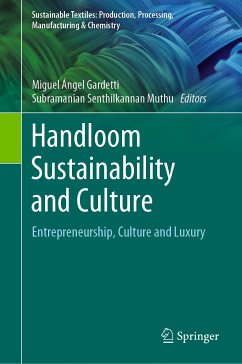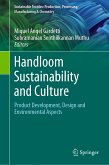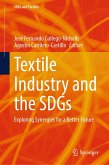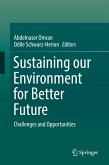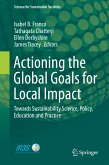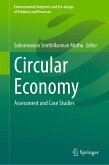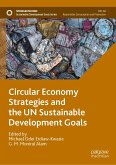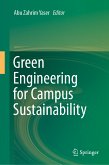Handloom Sustainability and Culture (eBook, PDF)
Entrepreneurship, Culture and Luxury
Redaktion: Gardetti, Miguel Ángel; Muthu, Subramanian Senthilkannan
73,95 €
73,95 €
inkl. MwSt.
Sofort per Download lieferbar

37 °P sammeln
73,95 €
Als Download kaufen

73,95 €
inkl. MwSt.
Sofort per Download lieferbar

37 °P sammeln
Jetzt verschenken
Alle Infos zum eBook verschenken
73,95 €
inkl. MwSt.
Sofort per Download lieferbar
Alle Infos zum eBook verschenken

37 °P sammeln
Handloom Sustainability and Culture (eBook, PDF)
Entrepreneurship, Culture and Luxury
Redaktion: Gardetti, Miguel Ángel; Muthu, Subramanian Senthilkannan
- Format: PDF
- Merkliste
- Auf die Merkliste
- Bewerten Bewerten
- Teilen
- Produkt teilen
- Produkterinnerung
- Produkterinnerung

Bitte loggen Sie sich zunächst in Ihr Kundenkonto ein oder registrieren Sie sich bei
bücher.de, um das eBook-Abo tolino select nutzen zu können.
Hier können Sie sich einloggen
Hier können Sie sich einloggen
Sie sind bereits eingeloggt. Klicken Sie auf 2. tolino select Abo, um fortzufahren.

Bitte loggen Sie sich zunächst in Ihr Kundenkonto ein oder registrieren Sie sich bei bücher.de, um das eBook-Abo tolino select nutzen zu können.
This first of the three volume series highlights the intricate relationship in the handloom industry between its culture and the various areas of sustainability. While there have been major disruptions in this age old industry, this volume presents the luxury and the entrepreneurship aspects to keep the industry moving ahead. The book contains seventeen chapters written by leading experts in the areas and discusses means to revive some of the cultures that are on the verge of closing/shutting down.
- Geräte: PC
- ohne Kopierschutz
- eBook Hilfe
- Größe: 13.81MB
Andere Kunden interessierten sich auch für
![Handloom Sustainability and Culture (eBook, PDF) Handloom Sustainability and Culture (eBook, PDF)]() Handloom Sustainability and Culture (eBook, PDF)69,95 €
Handloom Sustainability and Culture (eBook, PDF)69,95 €![Textile Industry and the SDGs (eBook, PDF) Textile Industry and the SDGs (eBook, PDF)]() Textile Industry and the SDGs (eBook, PDF)121,95 €
Textile Industry and the SDGs (eBook, PDF)121,95 €![Sustaining our Environment for Better Future (eBook, PDF) Sustaining our Environment for Better Future (eBook, PDF)]() Sustaining our Environment for Better Future (eBook, PDF)73,95 €
Sustaining our Environment for Better Future (eBook, PDF)73,95 €![Actioning the Global Goals for Local Impact (eBook, PDF) Actioning the Global Goals for Local Impact (eBook, PDF)]() Actioning the Global Goals for Local Impact (eBook, PDF)73,95 €
Actioning the Global Goals for Local Impact (eBook, PDF)73,95 €![Circular Economy (eBook, PDF) Circular Economy (eBook, PDF)]() Circular Economy (eBook, PDF)69,95 €
Circular Economy (eBook, PDF)69,95 €![Circular Economy Strategies and the UN Sustainable Development Goals (eBook, PDF) Circular Economy Strategies and the UN Sustainable Development Goals (eBook, PDF)]() Circular Economy Strategies and the UN Sustainable Development Goals (eBook, PDF)113,95 €
Circular Economy Strategies and the UN Sustainable Development Goals (eBook, PDF)113,95 €![Green Engineering for Campus Sustainability (eBook, PDF) Green Engineering for Campus Sustainability (eBook, PDF)]() Green Engineering for Campus Sustainability (eBook, PDF)97,95 €
Green Engineering for Campus Sustainability (eBook, PDF)97,95 €-
-
-
This first of the three volume series highlights the intricate relationship in the handloom industry between its culture and the various areas of sustainability. While there have been major disruptions in this age old industry, this volume presents the luxury and the entrepreneurship aspects to keep the industry moving ahead. The book contains seventeen chapters written by leading experts in the areas and discusses means to revive some of the cultures that are on the verge of closing/shutting down.
Dieser Download kann aus rechtlichen Gründen nur mit Rechnungsadresse in A, B, BG, CY, CZ, D, DK, EW, E, FIN, F, GR, HR, H, IRL, I, LT, L, LR, M, NL, PL, P, R, S, SLO, SK ausgeliefert werden.
Produktdetails
- Produktdetails
- Verlag: Springer Nature Singapore
- Seitenzahl: 310
- Erscheinungstermin: 11. Januar 2022
- Englisch
- ISBN-13: 9789811659676
- Artikelnr.: 63286249
- Verlag: Springer Nature Singapore
- Seitenzahl: 310
- Erscheinungstermin: 11. Januar 2022
- Englisch
- ISBN-13: 9789811659676
- Artikelnr.: 63286249
- Herstellerkennzeichnung Die Herstellerinformationen sind derzeit nicht verfügbar.
Miguel Angel Gardetti (Ph.D.), founded the Centre for Study of Sustainable Luxury, first initiative of its kind in the world with an academic/research profile. He is also the founder and director of the "Award for Sustainable Luxury in Latin America". For his contributions in this field, he was granted the "Sustainable Leadership Award (academic category)," in February, 2015 in Mumbai (India). He is an active member of the Global Compact in Argentina -which is a United Nations initiative-, and was a member of its governance body -the Board of The Global Compact, Argentine Chapter - for two terms. He was also part of the task force that developed the "Management Responsible Education Principles" of the United Nations Global Compact. This task force was made up of over 55 renowned academics worldwide pertaining to top Business Schools. Dr. Subramanian Senthilkannan Muthu currently works for SgT Group as Head of Sustainability, and is based out of Hong Kong. He earned his PhD from The Hong Kong Polytechnic University, and is a renowned expert in the areas of Environmental Sustainability in Textiles & Clothing Supply Chain, Product Life Cycle Assessment (LCA) and Product Carbon Footprint Assessment (PCF) in various industrial sectors. He has five years of industrial experience in textile manufacturing, research and development and textile testing and seven years of experience in life cycle assessment (LCA), carbon and ecological footprints assessment of various consumer products. He has published more than 100 research publications, written numerous book chapters and authored/edited over 100 scientific books in the areas of Carbon Footprint, Recycling, Environmental Assessment and Environmental Sustainability.
Bapta Saree Revival: Reinventing the Past for a Sustainable Future.- Environmental Sustainability of Handloom Sector.- Handlooms: Unleashing cultural potentials.- The Influence of Culture On The Sustainable Entrepreneur - An Investigation Into Fashion Entrepreneurs In Saudi Arabia.- A Sustainable Alternative For The Woven Fabrics: "Traditional Buldan Handwoven Fabrics".- Between the anthropological self-referentiality of the handloom and the cultural sustainability of the contemporary product, through re-crafting design.- Conscious, collaborative clothing: A case study on regenerating relationships within the khadi value chain.- A sustainable model: Handloom and community.- The Influence Of Starch Desizing On Thermal Properties Of Traditional Fabrics In Anatolia.- Indian Handloom Design Innovations And Interventions Through Sustenance Lens.- Sustainability, Culture, and Handloom.- Consumers' attitudes toward sustainable luxury products: The role of uniqueness and conspicuous consumption.- Uzbekistan: The silk route of handloom.- Urban Artisanal Luxury and Aesthetic Capitalism in a Symbiotic Relationship. Competitiveness in Understated Luxury from Two Cases in Taiwan.
Bapta Saree Revival: Reinventing the Past for a Sustainable Future.- Environmental Sustainability of Handloom Sector.- Handlooms: Unleashing cultural potentials.- The Influence of Culture On The Sustainable Entrepreneur - An Investigation Into Fashion Entrepreneurs In Saudi Arabia.- A Sustainable Alternative For The Woven Fabrics: "Traditional Buldan Handwoven Fabrics".- Between the anthropological self-referentiality of the handloom and the cultural sustainability of the contemporary product, through re-crafting design.- Conscious, collaborative clothing: A case study on regenerating relationships within the khadi value chain.- A sustainable model: Handloom and community.- The Influence Of Starch Desizing On Thermal Properties Of Traditional Fabrics In Anatolia.- Indian Handloom Design Innovations And Interventions Through Sustenance Lens.- Sustainability, Culture, and Handloom.- Consumers' attitudes toward sustainable luxury products: The role of uniqueness and conspicuous consumption.- Uzbekistan: The silk route of handloom.- Urban Artisanal Luxury and Aesthetic Capitalism in a Symbiotic Relationship. Competitiveness in Understated Luxury from Two Cases in Taiwan.
